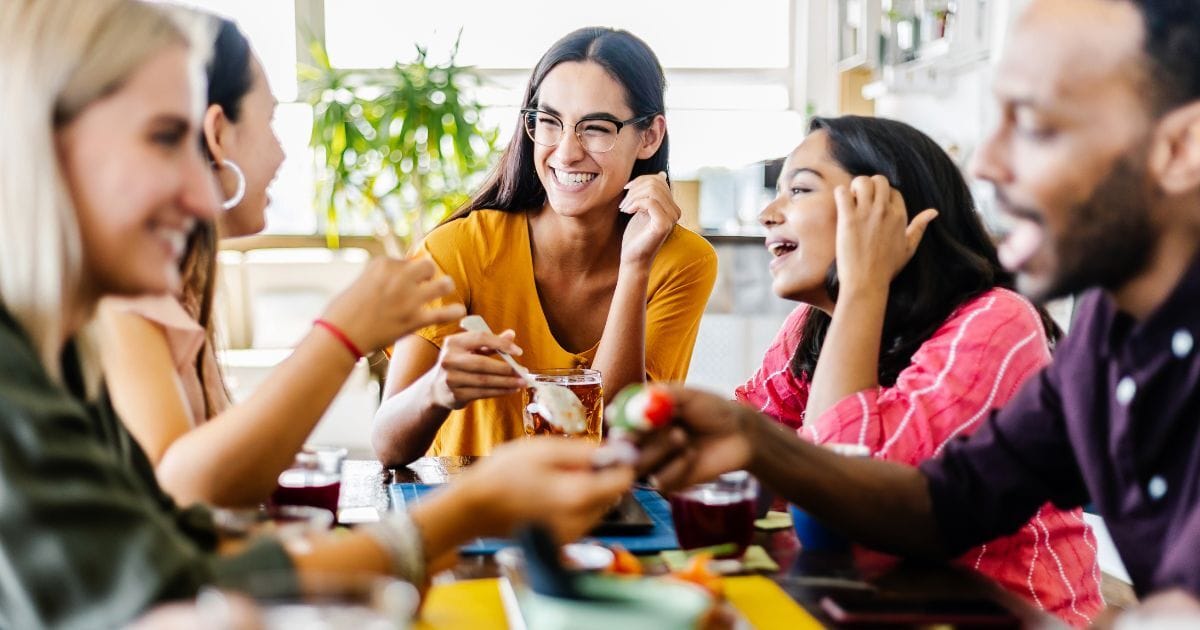From late-night pizza to dining-hall buffets, college has long been linked to an inevitable weight gain dubbed the “freshman 15.” But new research suggests the phenomenon may be less about unlimited meal plans and more about who, and where, students eat with.
A study led by Y. Alicia Hong, Ph.D., professor in George Mason University’s Department of Health Administration and Policy, found that first-year students tend to eat more when dining in groups or formal settings compared with eating alone or at home.
“Social and environmental factors are key determinants of eating behavior,” Hong said. “College students are affected by the eating environment, especially where they eat and whom they eat with. Our research found that they consume more calories when eating in groups or formal dining settings.”
The research team followed college students over four weeks, using a mobile app to record daily eating behaviors, mood, stress levels and settings. The app-tracked responses revealed a consistent pattern: food intake increased when students were in groups of two or more or when eating in communal dining halls or restaurants. When students ate alone or at home, their intake dropped.
Interestingly, the students didn’t seem aware of the difference. The study found that their perceptions of how much they ate often didn’t match what they actually logged. This disconnect between perception and behavior suggests that social and emotional cues may override internal hunger and fullness signals, a finding that echoes broader research showing how people tend to eat more when distracted, stressed or in company.
“College students’ eating behaviors are complex, with individual, interpersonal and environmental factors interacting to influence dietary intake,” Hong said. “This research underscores the importance of context in dietary intervention and incorporating digital tools for dietary assessment.”
The study, published in mHealth, also involved Larry Cheskin, M.D., a distinguished university professor in Mason’s Department of Nutrition and Food Studies and adjunct professor at Johns Hopkins School of Medicine, and Hong Xue, Ph.D., associate professor in Mason’s Department of Health Administration and Policy. Jo-Vivian Yu, a graduate in Health Informatics, contributed data analysis.
While the findings focus on college students, the implications extend well beyond campus. Social eating is a universal behavior and so is underestimating portions in group settings. The study reinforces a growing body of evidence that where and with whom we eat can influence how much we consume, often more than the food itself.
For young adults navigating new routines, the takeaway isn’t to avoid group meals but to be aware of how environment and emotion shape choices. Dining with friends can be joyful and connective but a little mindfulness, whether through tracking apps or paying closer attention to hunger cues, may help prevent the subtle calorie creep that defines the “freshman 15.”
This research was funded by the George Mason University College of Public Health Pilot Grant.
